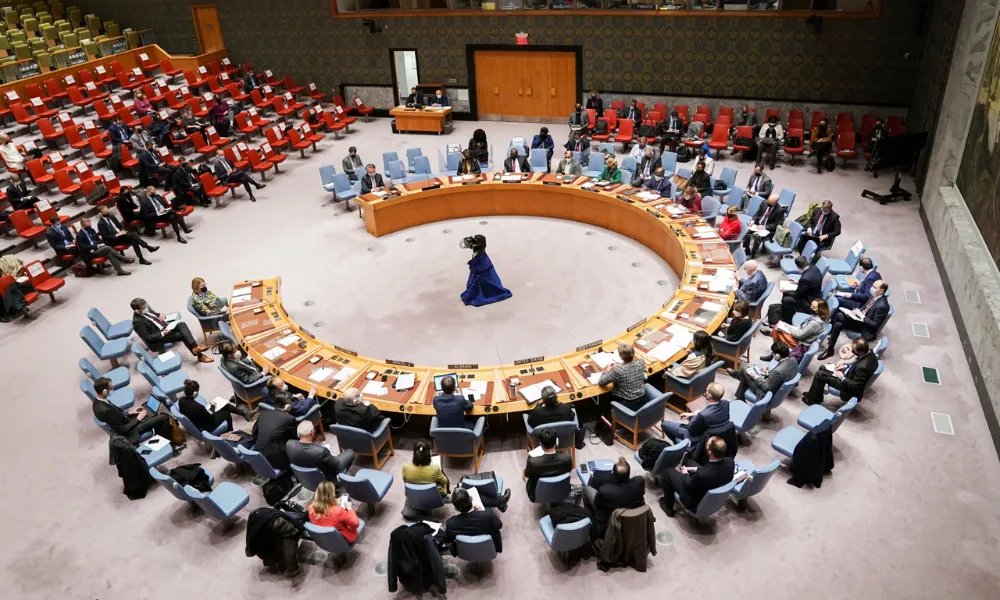The United Nations Security Council (UNSC) is expected to vote today on a draft resolution that endorses Donald Trump’s plan for the Gaza Strip, with Washington warning that failure to adopt it could see the war resume. The US text, repeatedly revised in delicate talks, “supports” the Trump plan that enabled a fragile ceasefire to take effect on 10 October, following over two years of war between Israel and Hamas triggered by Hamas’s 7 October 2023 raid in southern Israel.
What the US draft contains
According to a text seen by Agence France-Presse (AFP), the draft “authorises” the deployment of an international stabilisation force (ISF), mandated to use “all necessary means” in line with international law. Its tasks include securing borders, in coordination with Israel and Egypt, demilitarising the Gaza Strip by disarming “non-state armed groups,” protecting civilians and training a Palestinian police force. The composition of the ISF is not specified.
The US’s 20-point plan for Gaza, attached to the draft, also provides for the creation of a “peace committee” to be chaired by Donald Trump. Unlike earlier versions, the latest text, slated for a 17:00 vote, refers to a future Palestinian state, saying that, once reform of the Palestinian Authority advances and reconstruction in Gaza begins, “conditions may ultimately exist for a credible pathway to Palestinian self-determination and statehood.”
Israel’s government rejects that vision. “Our opposition to any Palestinian state on any territory has not changed,” Prime Minister Benjamin Netanyahu said on Sunday.
Russia circulated a rival draft, arguing the US text does not go far enough on statehood and reiterating Moscow’s “unwavering commitment” to a two-state solution. The Russian draft, also seen by AFP, does not authorise a peace committee or military deployment at this stage, instead asking the UN Secretary-General to present “options.”
Diplomatic pressure and likely outcome
US officials, decrying what they view as attempts to sow division, have intensified lobbying to secure Council approval. “Any refusal to support this resolution is a vote for Hamas’s continued rule, or for a renewed war with Israel that condemns the region and its people to endless conflict,” wrote US Ambassador to the UN Mike Waltz in an opinion piece in the Washington Post.
The US also released a joint statement with Qatar, Egypt, the United Arab Emirates, Saudi Arabia, Indonesia, Pakistan, Jordan and Turkey, highlighting broad backing for the text. Diplomatic sources told AFP that, despite Russia’s public criticism and other members’ concerns over the ISF and peace committee mandates, outright rejection is unlikely.
Richard Gowan of the International Crisis Group suggested Moscow may abstain rather than veto, given Arab support. “The most likely outcome is that China and Russia abstain, express scepticism about the plan, and then sit back and watch the US struggle with implementation,” he said.
Source: AMNA
